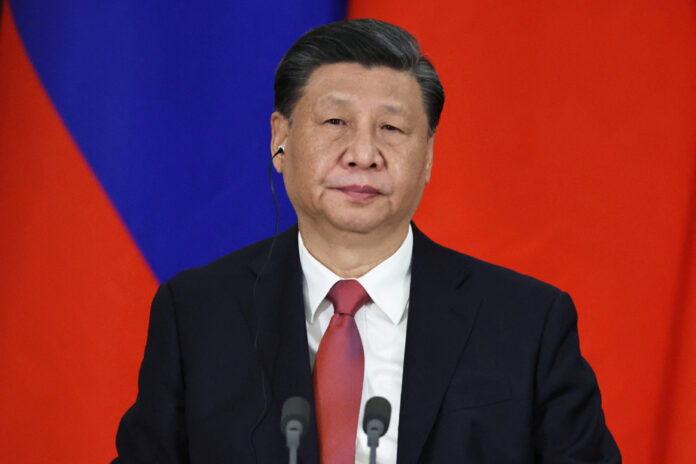(Washington) From the Middle East to Asia and Ukraine, China is advancing its pawns and increasingly posing as a counterweight to the United States, challenging Washington for world leadership.
But few experts expect upheaval in the short term and even say they are skeptical of Beijing’s ability to establish a new world order.
The ink was still fresh on the unprecedented agreement reached on March 10 in Beijing between the rival powers Shiite Iran and Sunni Saudi Arabia, and now Chinese diplomacy is beginning to play mediators around the war in Ukraine.
Chinese President Xi Jinping’s visit to Moscow this week, during which Russians and Chinese hailed the entry into a “ new era ” of their “ special relationship”, testifies to Beijing’s offensive aimed at countering the American superpower .
In a joint statement, the Chinese leader and Russian President Vladimir Putin also strongly attacked the West, accusing the United States of “undermining” international security to maintain their “military advantage”, and expressed their “concern” in the face of NATO’s growing presence in Asia.
In Washington, US officials are making clear their skepticism about Chinese peace proposals for Ukraine, which they say would allow Russian forces to consolidate after suffering numerous setbacks on the ground in the face of fierce Ukrainian defense.
The head of the American diplomacy Antony Blinken called on Monday that “ the world should not be fooled by any tactical decision by Russia, supported by China or any other country, to freeze the conflict on its own terms ” .
Mr. Blinken was also quick to point out that Mr. Xi visited Russia just three days after the International Criminal Court issued the arrest warrant for the Russian president, which he said suggests that China does not feel the need “to hold him responsible for the atrocities inflicted on Ukraine”.
But some point out that President Xi is not so much about ending the war in Ukraine as relaying a message.
He “wants to be seen and taken seriously as a peacemaker,” notes Robert Daly, who directs the China program at the Wilson Center, a Washington-based think tank.
“That’s what he’s interested in, rather than actually taking action to achieve peace in Ukraine. It is above all a question here of showing off,” he said.
Still, the United States is on the alert and claims to “ watch carefully ” China’s various advances in the diplomatic field, pending a telephone interview that President Joe Biden has promised to request from his Chinese counterpart.
The United States is particularly concerned that China could supply weapons to Russia, which would be a red line for Washington. However, they have so far refused to reveal the elements supporting their fears.
Relations between the United States and China, which engage in fierce competition from Latin America to Africa, are marred by tensions: Taiwan, North Korea, or the Chinese balloon incident above of the United States, which the American army finally resolved to shoot down at the beginning of February.
The United States has long called on Beijing to shoulder its responsibilities in the world, while designating the Asian giant as a threat to global security.
After the announcement of the rapprochement between Iran and Saudi Arabia, the United States made a good impression, the American Secretary of State believing that “ anything that can help reduce tensions […] is a good thing “.
US officials, however, have tried to play down the role played by China, arguing that Beijing is still far from outplaying Washington in a Middle East that remains largely under the protection of the US security umbrella.
For James Ryan, of the Foreign Policy Research Institute in Philadelphia, “China’s entry into the game is purely economic […]. China does not intend to provide security guarantees to the agreement.” Beijing imports a lot of oil there.
Yun Sun, a researcher at the Stimson Center in Washington, notes that the Iran-Saudi agreement has “made a lot of people feel bad about aid in the United States”.
“ The Chinese were just there at the right time and in the right place with the right relations ”, she says, while the United States no longer maintains diplomatic relations with Tehran.
“ They seized the opportunity to mediate. But, in fact, they will not be mediators. They have nothing to offer.”
“If the question is whether the Chinese are able to offer an alternative to the current world order, I don’t believe it,” adds the expert.


















